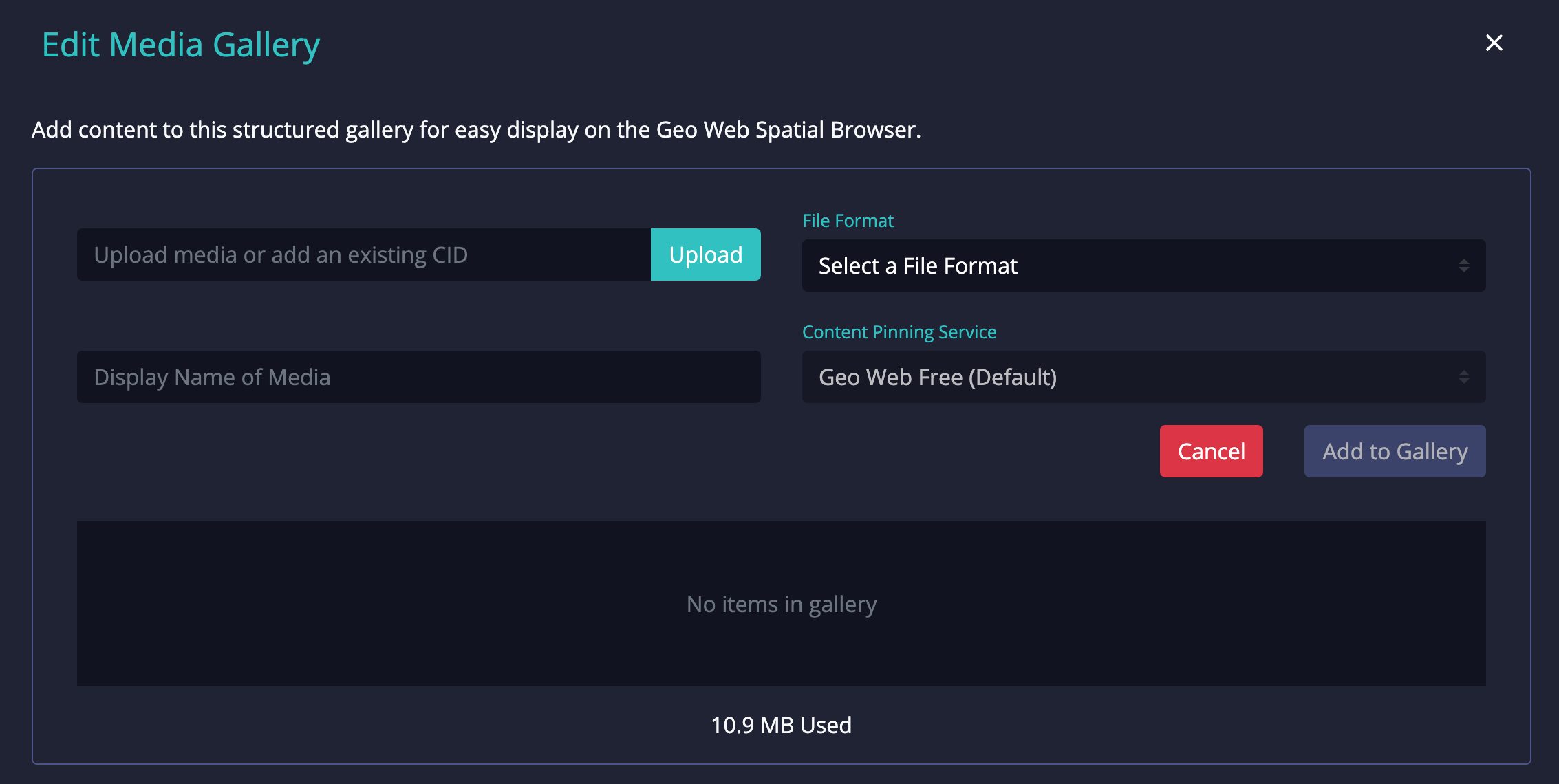Persistence & Storage
The IPFS protocol doesn't guarantee data availability. Because content is found by what it is rather than where it is, no one is explicitly responsible for storing the data on these networks.
With popular content that is naturally replicated across many connected nodes, this may not be an issue. That's not an adequate global assumption for Geo Web content to be reliably resolvable though.
Luckily there are many diverse (p2p) options for content storage that the Geo Web can and does integrate with.
Pinning is a concept native to IPFS. Content pinned in a IPFS node is protected from garbage collection (automatic clean-up/deletion of unused content). As long as the node remains online and content remains pinned, the content persists on the IPFS network.
For the average individual user, keeping their own node online at all times and pinning all of their content is impractical. This is why there are a number of pinning services (that run lots of reliable, redundant IPFS nodes) available in the IPFS ecosystem including Pinata, Textile, and Estuary.
The Cadastre integrates with these 3rd-party services using the IPFS Pinning Service API to provide long-term storage options for linked content.

The Cadastre's current default storage integration is with web3.storage, but we eventually allow publishers to connect to alternative pinning services (by entering their own API credentials).
The Geo Web-web3.storage integration is both convenient and powerful. Each Geo Web land licensor is allocated this free storage without requiring any extra account creation or credentials.
In addition to providing IPFS pinning (think of it as hot storage), web3.storage offers Filecoin archiving (cold storage). Filecoin is a decentralized storage network and the companion project of IPFS. It uses economic incentives (i.e., a token called FIL) and cryptography to create redundant, verifiable p2p storage.
---
Check out web3.storage and Filecoin's developer documentation for detailed information about their offerings.